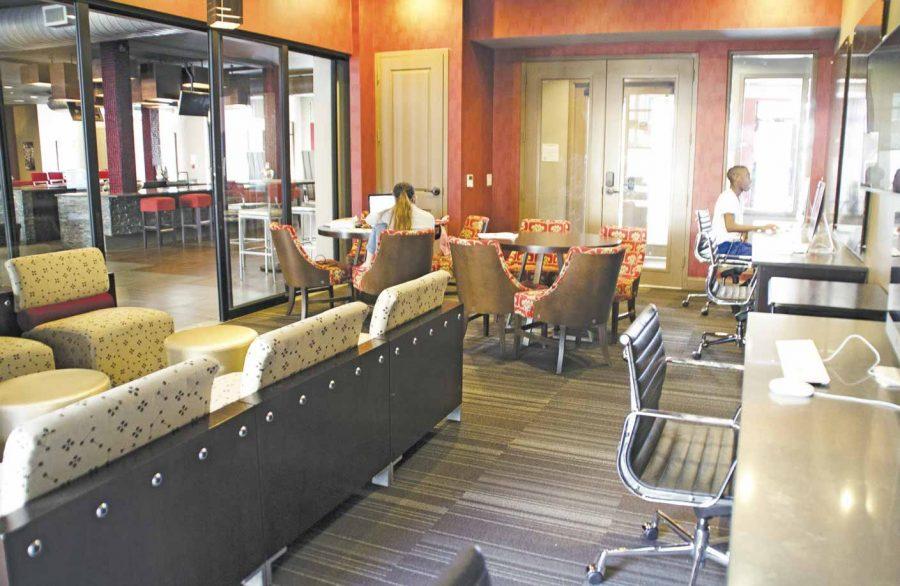The 2013 incoming freshman class was the largest in University of Alabama history. The 6,478 students required to live on campus caused a shortage of University housing and sent overflow freshmen to off-campus apartments contracted through the school.
Alicia Brown, associate director for information and communication for Housing and Residential Communities, said the University has a master lease with The Lofts. The spaces contracted through The Lofts are treated the same as on-campus housing in terms of payment and room selection.
“When HRC has a contract with an off-campus property, the University actually leases the spaces, and then students who live there contract for housing with HRC,” Brown said. “They are billed for housing on their student accounts, and they live in those spaces according to the University housing contract. They do not sign leases with the property, since the University is already leasing that space.”
(See also “Students, HRC face initial housing shortages“)
Brown said HRC anticipates having enough housing for all incoming freshmen next year, except for those who receive exemptions to live off campus. Approximately 450 students received exemptions last year.
Brittany Hollis, vice president for community leasing at The Lofts, said HRC leased just less than 100 spaces. This year, Hollis said, it has signed for 120. In addition to the 100 contracted spaces, The Lofts housed a number of incoming freshmen that received exemptions from the University.
“They came into our leasing office, and the process was the same as anyone else signing their lease,” Hollis said. “They filled out and signed their application and lease, paid the deposit, and we required a parental guarantee.”
Housing scholarships can also be applied toward spaces at The Lofts. Mary Spiegel, executive director of undergraduate admissions, said housing scholarships are not stipends. They can only be used at properties where the University has a contract.
Until this year, the housing scholarships awarded to National Merit or National Achievement Finalists covered four years of on-campus housing, which could be used toward a contract at The Lofts. The University has since reassessed the scholarships to cover just one year of on-campus housing.
(See also “Scholarship cuts to affect incoming National Merit Scholars“)
Aside from the National Merit scholarships, students in the University Fellows Experience receive a stipend of $1,000 a year for four years. The UFE stipend is not specifically a housing scholarship, so it can be used at any off-campus property.
Gianna Ceophas, a junior National Merit Scholar, said she was planning on living on campus this year to take advantage of her housing scholarship. Due to the housing shortage, the University gave her the option of living off campus with her scholarship. She said she enjoys living off campus because she gets her own bathroom and kitchen.
“The school sent an email at the end of June to see if anyone wanted to live at The Lofts, and I said yes,” Ceophas said. “I did room selection just like any other student does through the University.”
One factor that will alleviate housing strains in the upcoming fall semester will be the completion of Presidential II residence hall. Between these two Presidential Village buildings, there will be bed spaces for 1,840 students.
(See also “University planner explains vision for larger Ferg, Presidential recreation center“)









